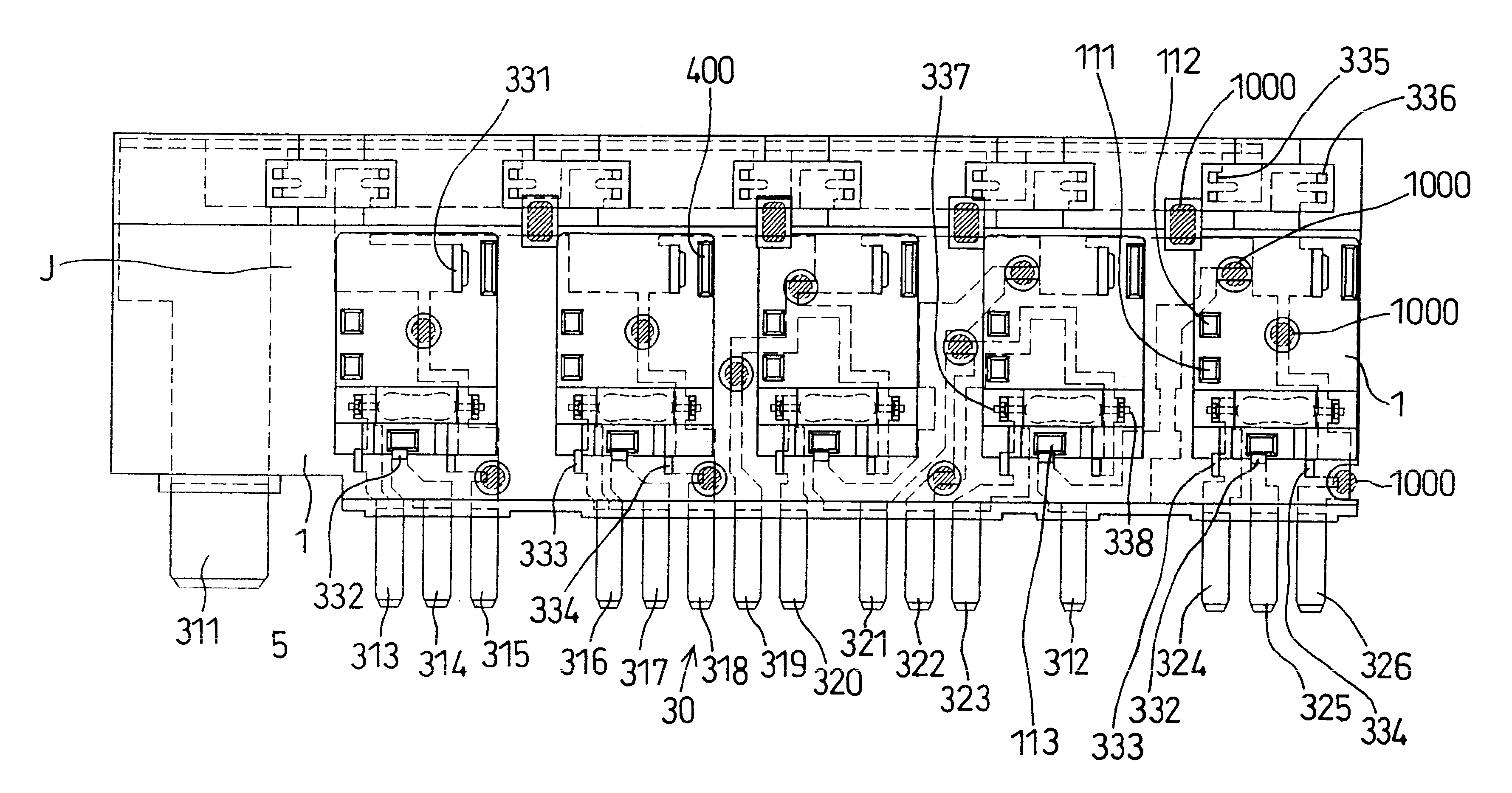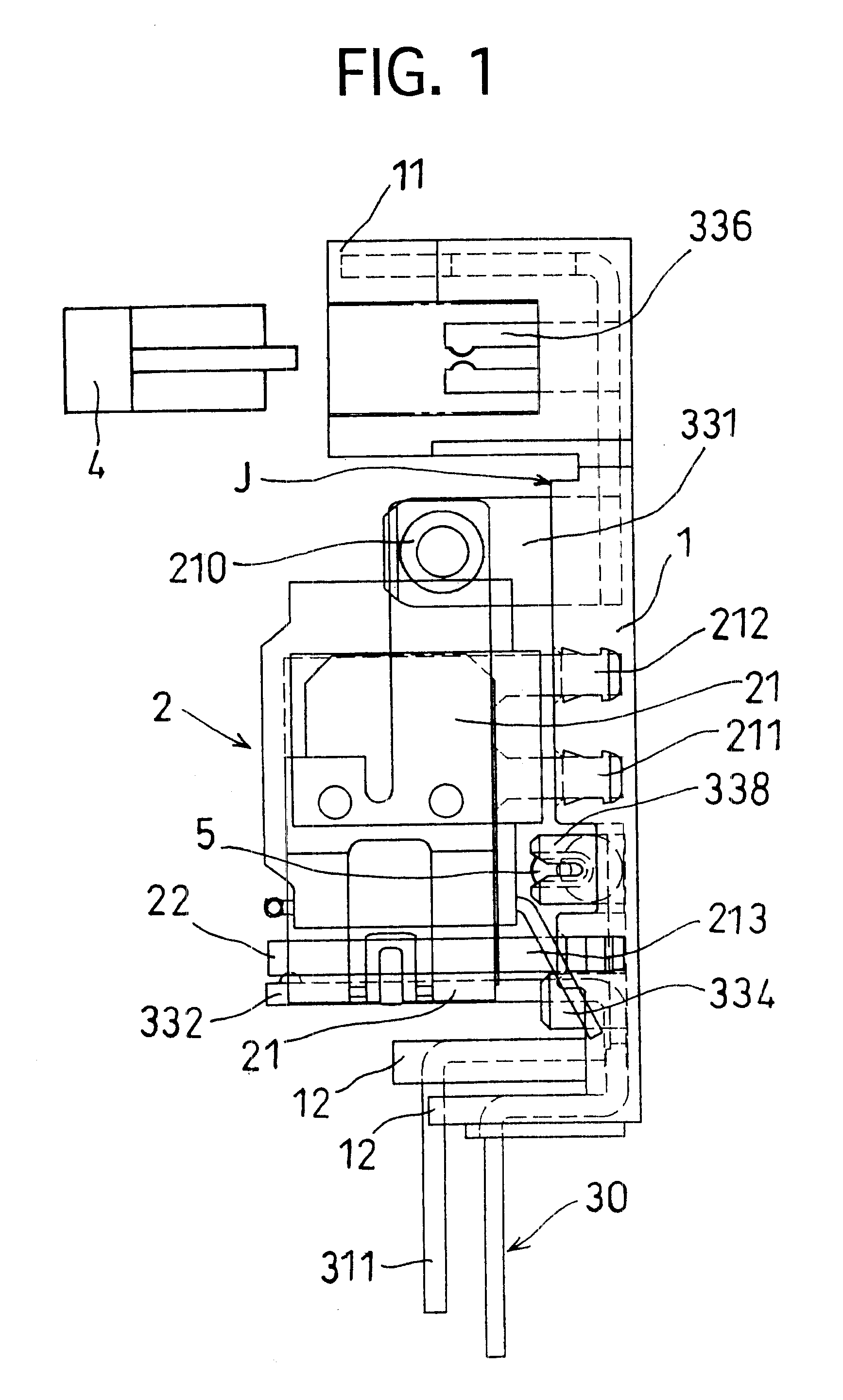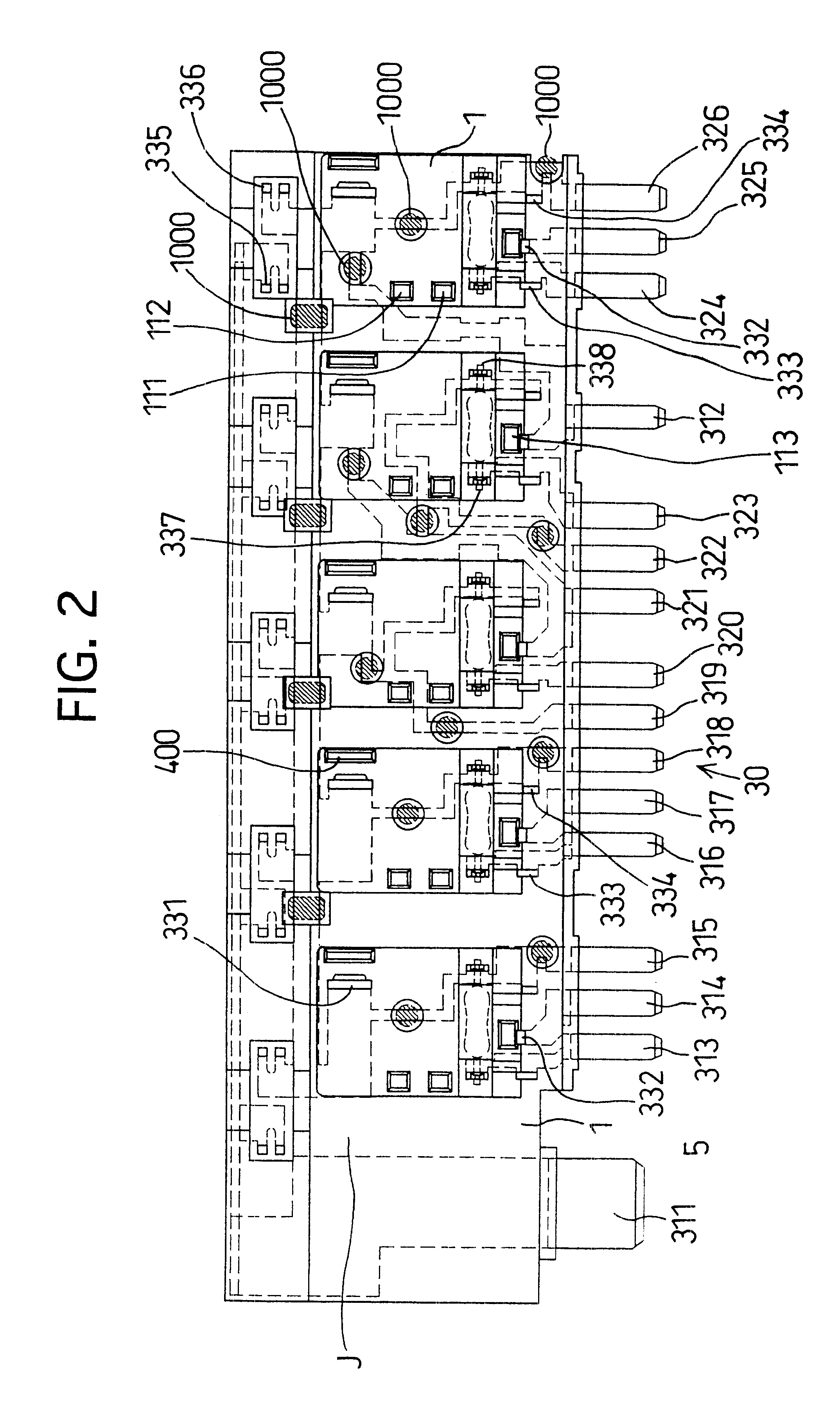Relay device
a technology of relays and components, applied in the direction of relays, non-polarised relays, electromagnetic relay details, etc., can solve the problems of difficult mechanical adjustment of relays, difficult to reduce manufacturing costs, and inability to perform the final mechanical adjustment of gaps between fixed contact members and movable contact members,
- Summary
- Abstract
- Description
- Claims
- Application Information
AI Technical Summary
Benefits of technology
Problems solved by technology
Method used
Image
Examples
first embodiment
a relay device in accordance with the present invention will be explained with reference to accompanying drawings.
The side elevation view of this relay device is shown in FIG. 1, the front view of a common base plate 1 and wiring members 3 is shown in FIG. 2, the front view of a relay unit 2 is shown in FIG. 3, and the front view of half-finished wiring members 3 is shown in FIG. 4.
As shown in FIG. 1, the common base plate 1 as a wiring board, which is composed of resin, has a generally rectangular and flat configuration, and includes a frontwardly opening window 11 for accommodating a fuse in an upper portion thereof, and a wall 12 which projects frontwardly from a surface J of the base plate 1 on which parts are to be packaged, in a lower end thereof.
Five sets of relay circuits, each being composed of one relay unit 2, one fuse 4 and one resistor 5, are arranged on the surface J of the common base plate 1.
Wiring members 3 (FIG. 4), each extending into a predetermined configuration...
second embodiment
a relay device in accordance with the present invention will be explained with reference to FIGS. 5 to 8. The reference numerals and characters which are used in these drawings for explaining the present embodiment are not related to those which were used in FIGS. 1 to 4 for explaining the first embodiment. FIG. 5 is a front view of a relay device of the present embodiment, and FIG. 6 is a bottom view thereof. In FIG. 5, only one relay is illustrated. Actually, a plurality of relays are packaged on a common base plate 17.
Construction
Reference numeral 10 designates a fixed contact, 11 designates a movable contact which faces the fixed contact 10 so as to be able to come into contact with and separate from the fixed contact 10. Reference numeral 12 designates a leaf spring to which the movable contact 11 is secured. The leaf spring 12 elastically biases the movable contact 11 in a direction away from the fixed contact 10, and defines a current-carrying route to the movable contact 11....
modified embodiment
In the preceding embodiment, the method of adjusting the contact gap L using the deformation of the stopper 19 has been explained. Of course, the contact gap L may be adjusted by deforming the holding member 18 which supports the fixed contact 10. The adjusting method using the deformation of the holding member 18 will be explained with reference to FIGS. 9 and 10. The holding member 18, the fixed contact 10, the movable contact 11 and the leaf spring 12 which are illustrated in FIG. 9 are arranged, similarly to the arrangement of FIG. 5.
The holding member 18 has a first plate member 18a which is partly embedded in the common base plate 17 (not shown), projects from the common base plate 17, and extends in parallel with the surface 17a toward the movable contact 11, and a second plate part 18b which extends from an end of the first plate part 18a in the direction away from the surface 17a, and the fixed contact 10 is secured to the second plate part 18b and faces the movable contact...
PUM
 Login to View More
Login to View More Abstract
Description
Claims
Application Information
 Login to View More
Login to View More - R&D
- Intellectual Property
- Life Sciences
- Materials
- Tech Scout
- Unparalleled Data Quality
- Higher Quality Content
- 60% Fewer Hallucinations
Browse by: Latest US Patents, China's latest patents, Technical Efficacy Thesaurus, Application Domain, Technology Topic, Popular Technical Reports.
© 2025 PatSnap. All rights reserved.Legal|Privacy policy|Modern Slavery Act Transparency Statement|Sitemap|About US| Contact US: help@patsnap.com



